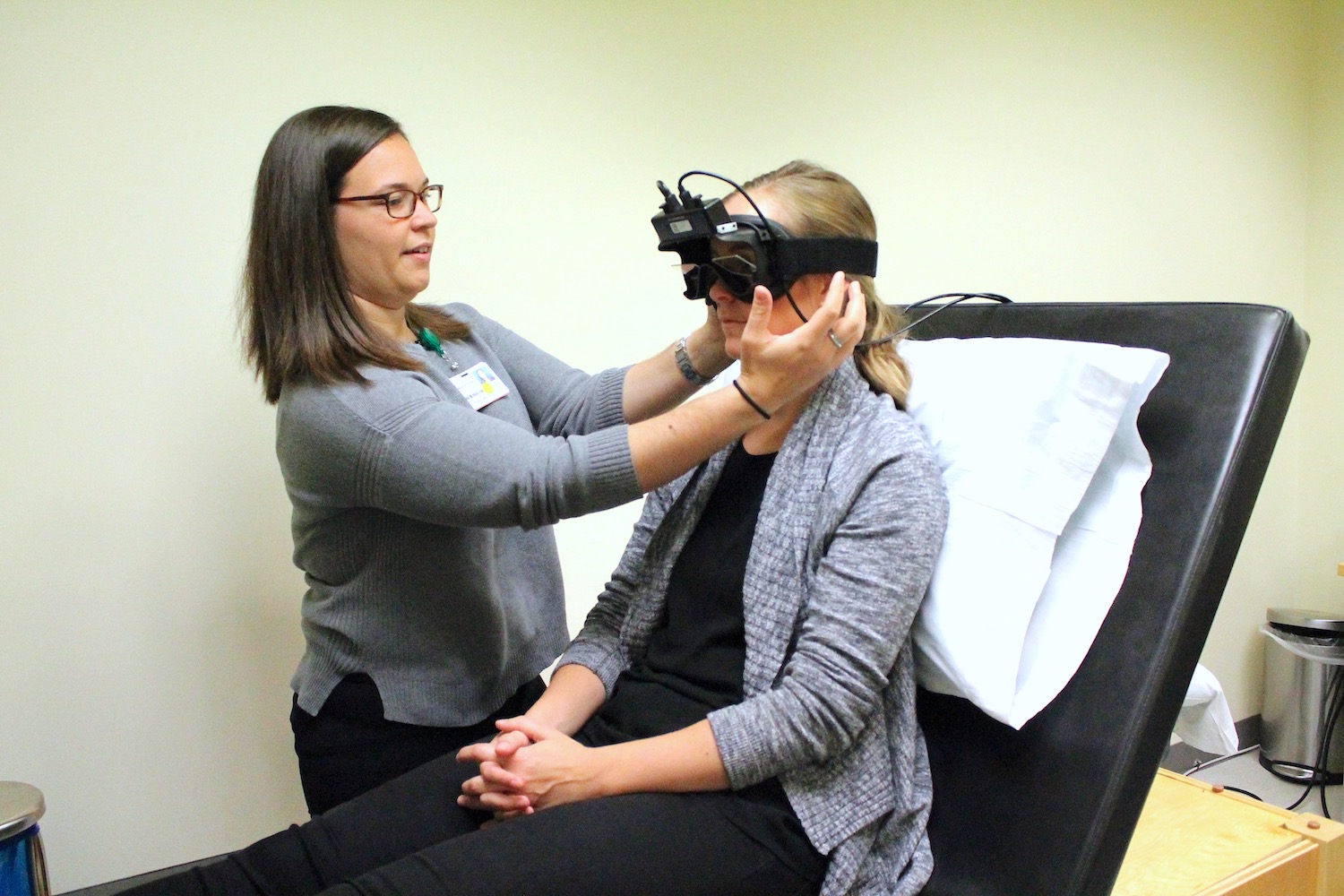Have Any Questions?
+91 77 9849 9977
Visit Us At
103, Shivom Regency, Baner Rd, Pune
+91 77 9849 9977
103, Shivom Regency, Baner Rd, Pune
Vestibular testing, also referred to as vestibular function testing or VFTs, is a series of tests that can evaluate hearing function. The goal of the tests is to determine if there is damage to the vestibular portion of the inner ear. The vestibular area of the ear controls balance. If the testing can determine if your symptoms, primarily dizziness, vertigo or a balance issue, are caused by an issue in the inner ear, they can be effectively treated. Vestibular tests are typically performed by otolaryngologists or audiologists.


Rotary Chair: Oculomotor, optokinetic and vestibular assessments are used to detect and quantify the causes of balance instability and dizziness. Rotary chair assessment is used to differentiate central from peripheral pathologies, as well as site of lesion analysis involving the utricle, which is part of the vestibular system.
Videonystagmography (VNG): VNG testing is commonly administered to people with dizziness, vertigo, and/or balance disorders. VNG consists of a battery of subtests utilizing visual, positional and temperature stimuli that differentiates vestibular from central neurological dysfunction. Goggles are worn during the evaluation to track eye movement in response to stimuli employed in the various subtests.
Vestibular Evoked Myogenic Potential (VEMP): VEMP testing is used to evaluate the functioning of the saccule and inferior vestibular nerve, which are parts of the vestibular system. Adhesive electrodes are attached to neck muscles, earphones deliver a sound to the ear and the response of the muscle is recorded.
Electrocochleographgy (ECochG): ECochG evaluates activation of the spiral ganglion within the cochlea and specifically examines the presence of hydrops associated with Ménière’s disease. The response is measured either deep in the ear canal or on the tympanic membrane.
A vestibular test battery includes several different tests that will tell your healthcare provider how well the vestibular portion of your inner ear system is working Your provider may order a vestibular test battery if you have symptoms of dizziness, vertigo or feeling off balance. The tests will show if these symptoms are due to an inner ear problem or a neurological (brain) problem and will help your provider develop the best treatment plan.
The testing is performed by an audiologist (a hearing and balance specialist) in a laboratory setting. During testing, the audiologist will look for the presence of nystagmus (involuntary eye movements) that may be due to vestibular or neurological problems.
The audiologist will review your test results with you at the end of your appointment and provide you with an after-visit summary for you to take home. Sometimes additional time is needed to review the test results. If this happens, your audiologist may schedule a later discussion with you.
The audiologist may include some instructions for follow-up care in the recommendation section of your after-visit summary. Review these with your healthcare team to develop an appropriate plan of care for you based on the test results.

Mail Your Resume At : drpriyankaneuro13@gmail.com